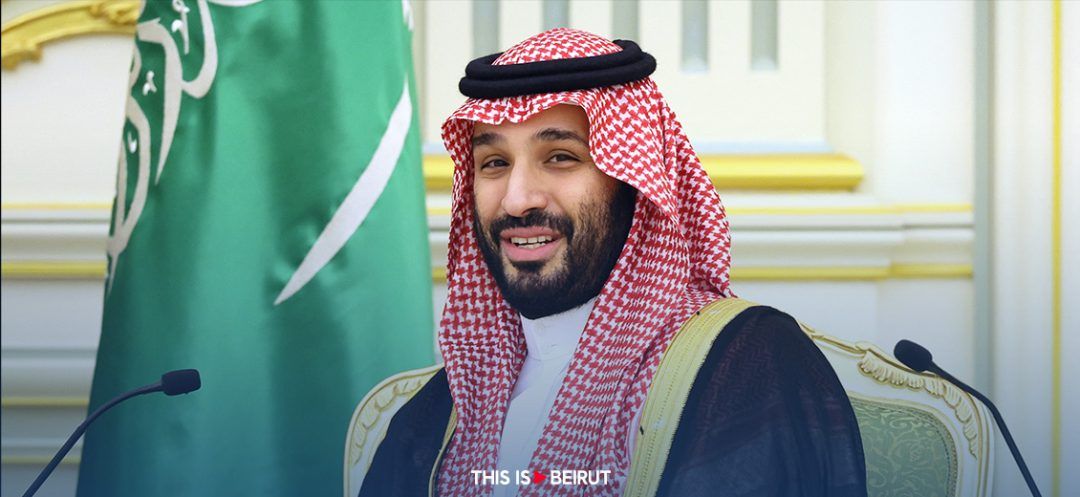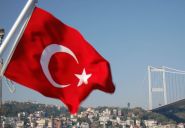- Home
- Middle East
- Saudi to Open Alcohol Store for Non-Muslim Diplomats

©(Photo by Sergei SAVOSTYANOV / POOL / AFP)
Saudi Arabia is reportedly implementing a significant shift in its alcohol policies by permitting sales to non-Muslim diplomats, according to information from two sources familiar with the matter, shared with AFP on Wednesday.
Saudi Arabia plans to allow alcohol sales to non-Muslim diplomats for the first time, two sources familiar with the plan told AFP on Wednesday, modifying strict rules governing liquor in the conservative country.
Alcohol "will be sold to non-Muslim diplomats" who previously had to import alcohol via a diplomatic pouch, or sealed official package, one of the sources said.
Prohibition has been the law of the land in Saudi Arabia since 1952, shortly after one of King Abdulaziz's sons got drunk and, in a rage, shot a British diplomat dead.
Rumors have swirled for years that alcohol would become available in the Gulf kingdom amid a wave of social reforms introduced as part of Crown Prince Mohammed bin Salman's Vision 2030 reform agenda. Among them, the introduction of cinemas and mixed-gender music festivals.
A Saudi government statement on Wednesday said authorities were introducing "a new regulatory framework ... to counter the illicit trade of alcohol goods and products received by diplomatic missions."
The statement added, "The new process will focus on allocating specific quantities of alcohol goods when entering the Kingdom to put an end to the previous unregulated process that caused an uncontrolled exchange of such goods in the Kingdom."
The policy "will continue to grant and ensure that all diplomats of non-Muslim embassies have access to these products in specified quotas."
The new store is located in Riyadh's Diplomatic Quarter, a neighborhood where embassies are located and diplomats reside, where sales will be "strictly restricted" to non-Muslims, according to the document.
It is unclear whether non-Muslim expatriates will generally have access to the store. Millions of expatriates live in the Kingdom, but most of them are Muslims from Egypt and Asia.
Beyond attending diplomatic receptions in Riyadh's Diplomatic Quarter, they can make homemade wine or turn to the black market, where bottles of whiskey can go for hundreds of dollars ahead of holidays like New Year's Eve.
Under Saudi law, penalties for alcohol consumption or possession can include fines, jail time, public flogging and deportation for foreigners.
Last year, Saudi Arabia was granted hosting rights for Expo 2030 and the World Cup in 2034, further fueling speculation that the alcohol ban might be lifted or at least weakened with carve-outs in places like NEOM, a planned $500 billion futuristic megacity.
But given that alcohol is forbidden in Islam, the issue remains deeply sensitive in the country that is home to the religion's holiest sites in the cities of Mecca and Medina.
Saudi officials had until Wednesday dismissed suggestions of any major policy change.
"The short answer is, we are going to continue with our current laws," Vice Minister of Tourism Princess Haifa Al Saud said when asked directly about the issue at the World Economic Forum in Davos in 2022.
Khalil Wakim, with AFP
Saudi Arabia plans to allow alcohol sales to non-Muslim diplomats for the first time, two sources familiar with the plan told AFP on Wednesday, modifying strict rules governing liquor in the conservative country.
Alcohol "will be sold to non-Muslim diplomats" who previously had to import alcohol via a diplomatic pouch, or sealed official package, one of the sources said.
Prohibition has been the law of the land in Saudi Arabia since 1952, shortly after one of King Abdulaziz's sons got drunk and, in a rage, shot a British diplomat dead.
Rumors have swirled for years that alcohol would become available in the Gulf kingdom amid a wave of social reforms introduced as part of Crown Prince Mohammed bin Salman's Vision 2030 reform agenda. Among them, the introduction of cinemas and mixed-gender music festivals.
A Saudi government statement on Wednesday said authorities were introducing "a new regulatory framework ... to counter the illicit trade of alcohol goods and products received by diplomatic missions."
The statement added, "The new process will focus on allocating specific quantities of alcohol goods when entering the Kingdom to put an end to the previous unregulated process that caused an uncontrolled exchange of such goods in the Kingdom."
The policy "will continue to grant and ensure that all diplomats of non-Muslim embassies have access to these products in specified quotas."
The new store is located in Riyadh's Diplomatic Quarter, a neighborhood where embassies are located and diplomats reside, where sales will be "strictly restricted" to non-Muslims, according to the document.
It is unclear whether non-Muslim expatriates will generally have access to the store. Millions of expatriates live in the Kingdom, but most of them are Muslims from Egypt and Asia.
Beyond attending diplomatic receptions in Riyadh's Diplomatic Quarter, they can make homemade wine or turn to the black market, where bottles of whiskey can go for hundreds of dollars ahead of holidays like New Year's Eve.
Sensitive Subject
Under Saudi law, penalties for alcohol consumption or possession can include fines, jail time, public flogging and deportation for foreigners.
Last year, Saudi Arabia was granted hosting rights for Expo 2030 and the World Cup in 2034, further fueling speculation that the alcohol ban might be lifted or at least weakened with carve-outs in places like NEOM, a planned $500 billion futuristic megacity.
But given that alcohol is forbidden in Islam, the issue remains deeply sensitive in the country that is home to the religion's holiest sites in the cities of Mecca and Medina.
Saudi officials had until Wednesday dismissed suggestions of any major policy change.
"The short answer is, we are going to continue with our current laws," Vice Minister of Tourism Princess Haifa Al Saud said when asked directly about the issue at the World Economic Forum in Davos in 2022.
Khalil Wakim, with AFP
Read more



Comments